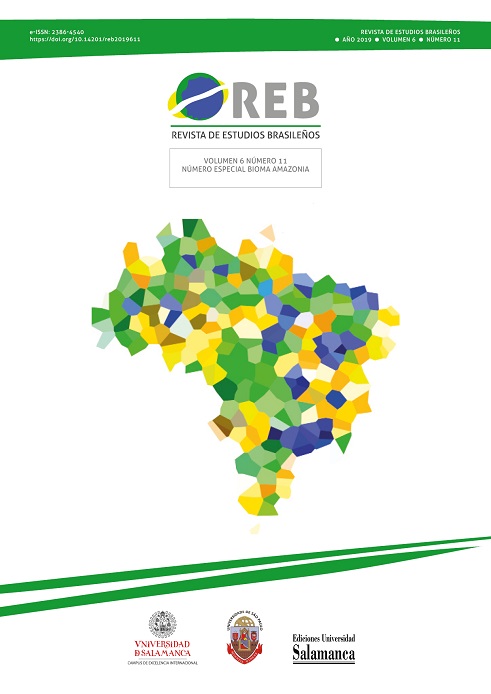Mineral potential of the Amazon
problems and challenges
DOI:
https://doi.org/10.14201/reb201961191108Keywords:
Mineral resources, Amazônia, mining potential, garimpo, organized miningAbstract
Mineral goods are indispensable to mankind since the beginnings of civilization and mineral resources will always be needed, and in increasing proportion. The Amazon, about half the Brazilian territory, represents the last important mineral border of the planet. The region has a huge mining potential, little used. New models for the formation of mineral deposits are being tested, with the possibility of a new mineral province producing copper, molybdenum and gold in the future. The main mineral resources being explored, especially in the Serra dos Carajás region, include gold, copper, nickel, manganese and, mainly, iron. On the other hand, although it holds less than 10% of the Brazilian mines, the Amazon is responsible for about 30% of the total value of the country’s mineral production. Predatory activities damage the Amazonian rivers and the tropical forest, by the action of thousands of garimpeiros, dispersed in huge, sparsely populated areas. On the other hand, organized mining, which operates on a large scale, provides large revenues, even if it occupies a small area of land. The case of Carajás Forest (FLONA) is an emblematic case in which organized and sustainable mining protected the whole area from deforestation, which remained entirely preserved, while in its surroundings the region was devastated by agriculture and human occupation.


